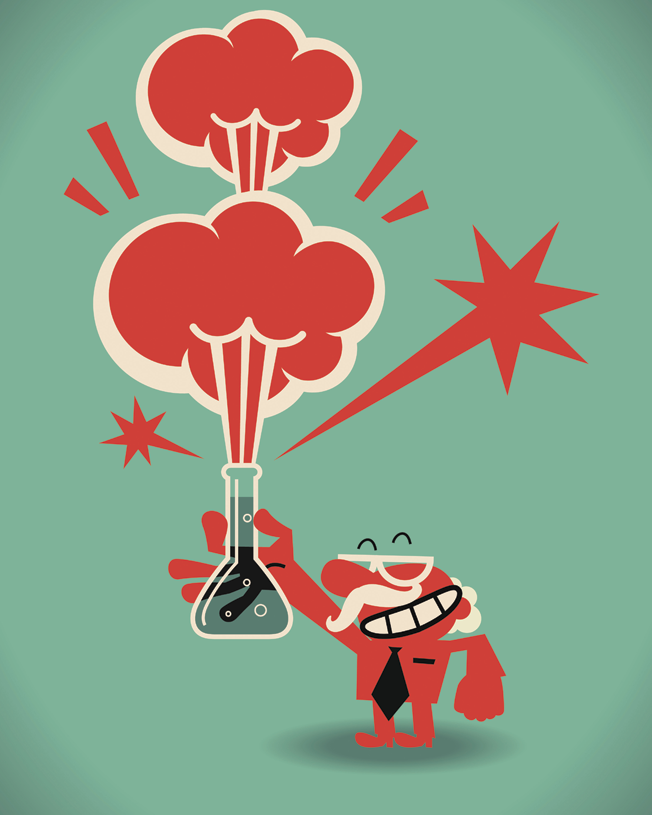Inspiration meets innovation at Brandweek, the ultimate marketing experience. Join industry luminaries, rising talent and strategic experts in Phoenix, Arizona this September 23–26 to assess challenges, develop solutions and create new pathways for growth. Register early to save.
You've heard it before: You're a great agency and the work was terrific, but we're going with someone else that's a "better fit." Where did you go wrong? Did you have the right people in the room? Were they coached on creating a bond with the clients?

It's the chemistry between agency and client personnel that wins business. Sure, strategy, insights, creativity, invention and buying prowess are all critical. But clients have to work together with the agency team day in and day out. It's a marriage, and marriages function best when they're healthy, respectful and collaborative.
Many clients ask to include the people who would actually work on the account in the meeting, but you have less confidence in their presentation skills, so you bring a team with mostly senior management. You come to the presentation full guns blazing, but the client knows they'll never see half of those folks again. This doesn't engender strong chemistry. So how do you improve chemistry when it's such a complex emotion? How do you create that special connection? You know that it's very early on when you meet someone that you can intuitively work out whether there is positive or negative chemistry. This is evidenced in our personal relationships.
Chemistry occurs most often between people who are down to earth and sincere. Also, if people are comfortable with themselves, they are better able to express their true self, which makes it easier to get to know someone even if they're coming from different perspectives. Since chemistry in new business pitch situations can't be premeditated, the only ways to positively influence chemistry are to create deeper connections with the client prospects you are dealing with and ensure that your presentation team is fully unified, sincere and well-prepared.
Let's break that down. How do you create deeper connections with clients you don't know? Do some research upfront on individuals by scouring their social media sites. Gain an understanding of their personal interests, activities, things that make them tick beyond work. You can uncover incredible personal nuggets simply by scrubbing their pages on LinkedIn, Facebook and Twitter. You can also find out their business-related hot buttons and pain points. Then find a commonality—what passions or interests do you share? What unique capability do you offer that can address their issues? Once determined, find a way to weave those interests into the conversation. Doing this disarms them, brings their shield down and raises the trust factor. From there, you're well on your way to creating allies for life.
In summary, here are the five things you need to do to improve chemistry with client prospects:
1. Gain an understanding of their personal interests, activities, things that make them tick.
2. Research their business hot buttons and find their pain points.
3. Identify commonalities—what passions or interests do you share with them?
4. Weave shared interests into the conversation early.
5. Match solutions to their needs, not just the obvious ones.
Beyond these, it's also crucial to unify your team. When employees appreciate being a member of the group and feel an affinity to it, they're more committed to working toward the team's goal. This cohesiveness fosters better collaboration, spontaneity and mutual support, and it reduces counterproductive conflict.
By galvanizing your team this way, you will come across in a new business pitch as confident people who enjoy working together and, as a result, will instill better chemistry when interacting with client personnel. Just as important, you must leave room for dialogue in presentations, as it can't be a one-sided conversation. Agencies tend to talk about themselves too much, and these meetings and discussions are about what you're going to do for the client. So just let clients talk.
It is also important to point out that even if you don't prevail in a review yet were successful in developing strong chemistry with any of the clients, you must continue to maintain those relationships. Offer to be a resource for a second opinion, or perhaps try to sell them a service that the selected agency doesn't offer.
There are examples of clients who have made the wrong decision on their agency choice and end up initiating discussions with the runner-up agency six months later. I've had the good fortune of turning a rejection into a win more than a few times in my career.
You must take a long view of the new business cycle.
We talk about having lifetime clients. Given the turnover of marketing directors every couple of years, opportunities can come down the line at any given time. Staying top of mind and showing a personal interest will have a lasting effect.
Zach Rosenberg (@ZachRosenberg) is president of MBMG.
This story first appeared in the Jan. 25 issue of Adweek magazine. Click here to subscribe.








